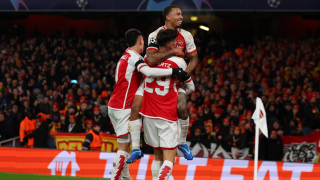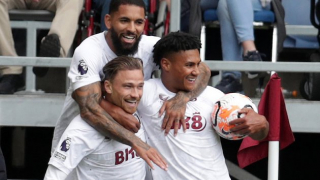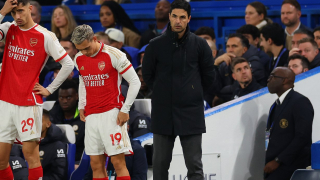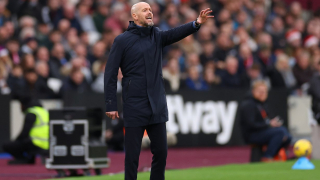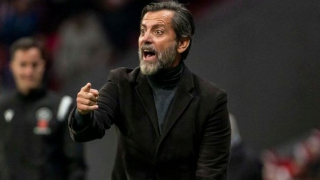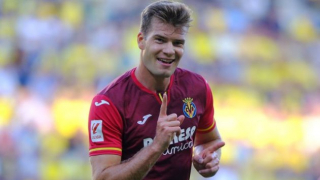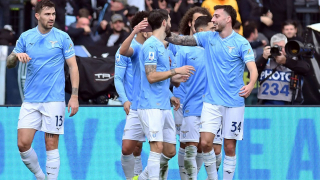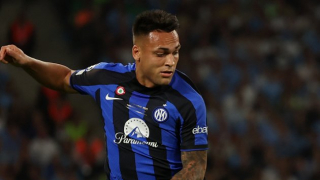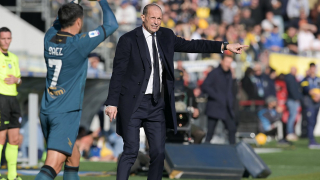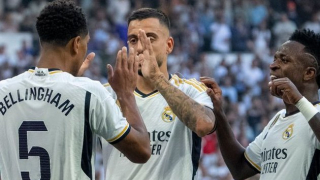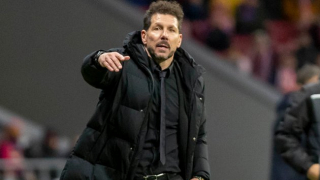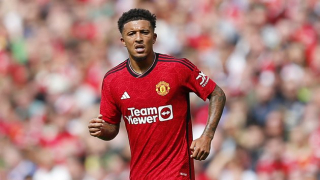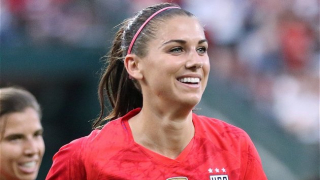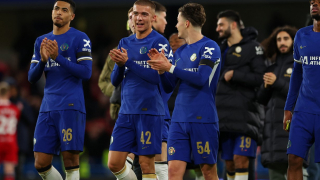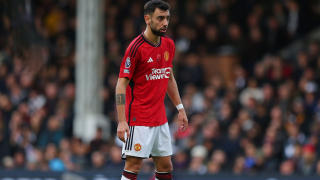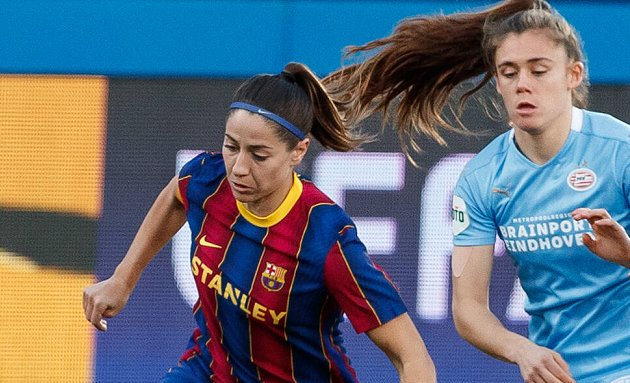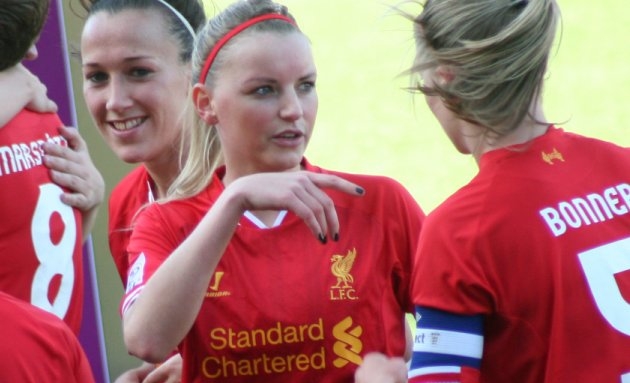This week, we look at the 2020 Libertadores Cup Femenina championship tournament in South America, which was held this year because of COVID-19. We also look at a new professional football league in the U.S. that is starting in the Southeast and will have men's and women's sides with equal pay; the twist is that it is an indoor soccer league. We also look at a high profile international from Africa who has played in Australia, China and the U.S. among other countries, who is returning to play club ball in Sweden and look at the internationals playing with Stockholm rivals Djurgardens and recently promoted AIK.
CONMEBOL 2020 Libertadores Cup Femenina
Delayed to 2021, the 12th edition of the CONMEBOL Libertadores Cup Femenina for club teams was held from May 5-21 in Argentina. It was originally slated to be held last summer in Chile. Defending champions Corinthians of Brazil were knocked out in the semifinals and fellow Brazilians Ferroviara won their second continental club title by defeating America of Colombia 2-1. Sixteen teams participated in the 2020 event:
Argentina
Bolivia
Deportivo Tropico
Brazil
Ferroviaria
Kindermann/Avai
Chile
Santiago Morning
Universidad de Chile
Colombia
Santa Fe
America
Ecuador
El Nacional
Paraguay
Libertad/Limpeno
Sol de America
Peru
Universitario
Uruguay
Penarol
Venezuela
Atletico SC
From the group stage, Corinthians and America advanced from Group A to the quarterfinals, Boca Juniors and Santiago Morning moved on from Group B, River Plate and Santa Fe were the top two sides from Group C, while Universidad de Chile and ultimate champions Ferroviaria finished one-two in Group D—the latter just edging out Libertad of Paraguay, who had 4 points and -1 Goal Differential, but the Brazilians scored 5 goals to 4 for the Paraguayans, who had defeated Ferroviaria 4-0 in the first game of the tournament.
In the quarterfinals, Corinthians were on fire against Santiago Morning (7-0), America of Colombia edged Boca Juniors 2-1 while fellow Argentinian side River Plate narrowly lost to Ferroviaria 1-0 and Universidad de Chile defeated Santa Fe 3-1.
In the semifinals, America edged Corinthians 4-3 on penalty kicks after a 1-1 tie and Ferroviaria also made the final through penalty kicks against Universidad (7-6) after a 0-0 tie.
Corinthians finished third in the tournament after blasting the Chileans 4-0 in the consolation game.
Corinthians had a devastatingly potent offense during the tournament but came undone in the semifnals. For Ferroviaria, the major talking point—despite their heavy first game defeat and squeaking by into the knockout-stage—was that their head coach/technical director was a woman: Lindsay Camila. The 39-year-old Camila became the first female head coach in history to win the CONMEBOL club title for the side from Araraquara of Sao Paulo state (approximately 238,000 population), which is about a three hour drive northwest of the city of Sao Paulo. Camila—initially an assistant coach at the club—took over as head coach in January 2021, a few months before the Copa, from Tatiele Silveira earlier this year, who left as a result of the COVID-19 pandemic which has been particularly virulent this year in the country. She is also the only women's head coach in the Brazilian first division but has experience coaching the U-17 women's national team and earned a UEFA A Coaching license.
Unfortunately, there was no television coverage of the event. Viewers could find it on Facebook and over 100,000 connected to watch it during the Final.
Lindsay Camina (center in black) celebrates with her side after Ferroviaria won the 2020 Copa Libertadores Femenina in March 2021. (Photo courtesy Lindsay Camina—Instagram).
Corinthians had five of the top six scorers during the tournament and led all teams with 39 goals in 6 games with only one against—that came in the deadlocked semifinal which was enough to get America de Cali into the final after penalty kicks—while Ferroviaria only scored 8 while letting in 7 in their six matches. The Copa Libertadores Femenina top scorers were Gabi Nunes, Grazi, and Victoria all with 7, Giovanna Crivelari with 5 and Adriana with 4—all five players were from Corinthians while Lele of Kindermann/Avai also had with 4. Yael Oviedo of Argentina (28), who formerly played with Rayo Vallecano of Spain, had 3 goals to joint lead Universidad de Chile with Daniela Zamora of Chile. Oveido played with her country in the recent SheBelieve's Cup in the U.S. against the Americans, Brazil and Canada. Zamora recently signed with Djurgarden of Stockholm in Sweden (see more news on other signings by Djurgardens and Stockholm rival AIK below) and both played for their respective country's at the 2019 Women's World Cup Finals in France.
National Indoor Soccer League Launches a Professional League for Women Later This Year in the Southeastern U.S
The National Indoor Soccer League (NISL) has announced a professional men's and women's season to begin later this year. Based in Southaven, Mississippi, the NISL harkens back 40 years ago to the glory days of the Major Indoor Soccer League (MISL). Indoor Soccer in the U.S. refers to not futsal but soccer played within a hockey rink, with six on a side. The MISL began with the 1978/79 season before folding in 1992. The MISL became so influential and popular that it hastened the end of the outdoor North American Soccer League (NASL), which ran from 1968 to 1984 and included iconic teams like the Chicago Sting, New York Cosmos, Portland Timbers, San Jose Earthquakes, Seattle Sounders, Tampa Bay Rowdies and Vancouver Whitecaps, with some of these team names existing in MLS or other leagues to this day. In part due to the NASL being threatened by the indoor game, the outdoor league did start playing indoor seasons in the winter to compete against the MISL but the additional cost in players and facilities—plus less than whole-hearted commitment from some teams—was a financial path too far and was a key contributor to the NASL folding after the 1984 season. In the mid-to-late 1980's and early 1990's, if you wanted to see professional soccer in the U.S., it was the indoor variety, though some games resembled human pinball with the ball bouncing off the astroturf field (sometimes placed directly on top of an ice rink) hockey sideboards and players themselves.
With the award of the 1994 World Cup to the U.S. by FIFA in 1988, the pendulum finally swung to the outdoor game (significantly the U.S. floundered in World Cup qualifying for the 1982 and 1986 Finals as they had to rely on players coming primarily from the much different indoor game) but did narrowly squeak through to the Finals in 1990—the first time they had appeared since 1950. Part of the World Cup agreement with FIFA was the stipulation that U.S. Soccer would start a professional outdoor league, with Major League Soccer (MLS) beginning in 1996, a year behind schedule. After some difficult years and losing some franchises in the early years, MLS is up to 27 teams across the U.S., with three clubs based in Canada.
In the NISL, the Memphis Americans will join the league (the same name as their MISL franchise from the early 1980's that played three seasons in the city) along with three other teams from the Southeastern U.S., with team announcements and details expected within the next few weeks. The league season will start in December and teams will play a 24-game schedule.
Significantly for women's football followers, each team will field a men's side and a women's side, with teams playing doubleheaders. The male and female salaries will be equal, which is also a huge move forward for the women's game. Andrew Haines, a NISL Executive Board Member (and our media contact) explained, "Men's players are not making more than the women's. It's equal across the board. We have the same budget for both teams." That said, we expect those salaries to be quite low to start as the league establishes itself. There is a men's national indoor league (the Major Arena Soccer League) still in the U.S., with long-time sides such as the Milwaukee Wave, Baltimore Blast, Tacoma Stars and others who trace their roots back to the NPSL (a minor league playing around the same time as the MISL) or the original dedicated professional men's soccer league.
Two women, Colete Cunningham and former U.S. international Kristine Lilly, played in an American professional indoor league—both with the Washington (D.C.) Warthogs of the Continental Indoor Soccer League in the mid-1990's, a successor to the MISL. Another Warthogs alumnus is current Washington Spirit head coach Richie Burke, a native of Scotland who played collegiately in the States and for D.C. area outdoor teams.
I saw a lot of indoor soccer team games over the years—in Chicago, Cleveland, Detroit, Minneapolis, San Diego, St. Louis and NPSL games in Chicago, Kalamazoo, Milwaukee, Toledo, etc.—and there was definitely a strong following and excitement about the indoor version of the game at the time. We see women's futsal leagues around the world—there is a strong one in Australia—and the indoor game teaches quick ball skills, precise passing and targeted shooting at much smaller goals. Having played both games (and having a professional tryout with a MISL team from Denver in their first season) there is an adjustment period which can take a few weeks to adjust to the different size fields and number of plays when going back and forth between codes.
I think this opportunity for women to play professional indoor soccer is marvelous and the NISL leaders showed foresight and vision by beginning the men's and women's loop at the same time. We will follow this league in this column and talk with players, coaches and league officials about their experiences in growing the NISL, which hopefully can expand beyond the southeast region to ultimately have a national presence.
Ghanaian international Elizabeth Addo joins Djurgardens in Stockholm, Sweden for the 2021 season—with other internationals at the club and cross-town rival and recently promoted AIK
Ghanaian midfielder Elizabeth Addo (27) has joined Djurgardens in Stockholm for the Swedish Damallsvenskan 2021 season. The much-traveled Addo (27) signed a 6 month deal through the summer, with a one-year extension option, which is common for Swedish clubs when bringing players into the league, using the first half of the season as an evaluation period for both club and player. Addo had joined North Carolina Courage on a one-year deal in January of 2021 but it was cancelled at her request, "so she could purse an overseas opportunity" according to a Courage press release. She previously played in Cyprus with Apollon Limassol. She originally rose to prominence in Sweden at Kvarnsvedens, scoring seven goals in 29 games, after time with teams in Serbia and Hungary. She then played with OL Reign in Seattle in the NWSL, Western Sydney Wanderers in the Westfield W-League in Australia and Jiangsu Suning in China.
She will join defender Portia Boakye, also a Ghanaian international, at the club where she has played since 2018 and Boakye also played in Hungary and Turkey. Midfielder Linda Mothalo of Soth Africa is in her second season with the club and spent the 2018 season with the Houston Dash in the NWSL and then went to China for a year with Beijing BG Phoenix FC. A fourth CAF player new to the club this season is Alexandra Takounda (20) from Cameroon, who appeared for her country at the 2019 WWC in France and the U-17 FIFA WWC in 2016. Daniela Zamora of Chile (see above) is new this year, as is American striker Hayley Dowd (26), who played three seasons at the Division II level in Sweden at Moron and Luusdal from 2018-2020; Dowd also played a few minutes in one game with the Boston Breakers in the NWSL in 2017 and before that at Boston College.
Midfielder Michaela Van Den Bulk, who won a UEFA Women's EURO title with her native Netherlands in 2017, is back for her sixth season at Djugardens. In goal, American Kelsey Daugherty (24), from the University of Alabama-Birmingham, has started all three games to date during the 2021 regular season with Djurgardens. She played well for Fortuna Hjorring in Denmark in 2019/20 but saw no game action with the Chicago Red Stars last summer in the NWSL. In defense, Rachel Bloznalis (Boston University) is in her second season with the club and fourth in Sweden, spending her first two seasons with Division 2 side and former Damallsvenskan powerhouse Umea. Icelandic international Guorun Arnardottir has also played all 3 matches in defense in her third season at the club, transferring from Breidablik at home after the 2018 season. Danish U-19 and U-17 international forward Maria Hovmark (21) is in her second season at Djurgardens after coming from Brondby at home for the 2020 season, but has yet to see any game action. After three games, the club is in a four way tie for seventh with 1 win and 2 losses in the Damallsvenskan.
Fellow Stockholm side AIK is joint fourth in the table on 4 points from 3 games. Promoted as Champions following the 2020 Elitettan season, Japanese international Honoka Hayashi (22) has two goals in three games and looks to be a superb new acquisition after moving from over from Cerezo Osaka.
Three of the AIK side come from neighboring Finland:
International goalkeeper Milla-Maj Majasaari (21), who helped the side to the championship and promotion last season while playing in 24 games
Defender Emma Santamaki (24) is also in her second season at AIK and was capped at the U-17, U-19 and U-20 level by Finland.
Midfielder Jenny Danielsson (26) has one goal this season for AIK after scoring 9 in 25 games last season. She spent the 2019 season in the Damallsvenskan with Kungsbacka and played previously at Kristianstad, and lined up for Aland United and Honka at home. She is a current full international for her country.
The AIK coach this season is also Finnish—Maiju Ruotsalainen—who joined the side in January. The 37-year played at home and with Torres in Italy.
American midfielder Caroline Murray (28) has been playing in Finland, Iceland and the second tier in Sweden since 2016. She had a trial at now NJ/NY FC Gotham in 2020 for their preseason camp but COVID wiped away that chance as all camps were postponed shortly after they began in March 2020. Fellow American defender Hannah Davison joins AIK for her first season after moving from the Chicago Red Stars in the NWSL, where she played 2 Challenge Cup Games (out of 7) and 1 in the Fall Series in 2020 (out of 4 games), after not seeing any game action for the Red Stars in 2019. She played collegiately at Northwestern University in Chicago and has started all three games at AIK this season.
Also in defense is veteran Iceland international Hallbera Gisladottir, who played with rival Djurgardens in 2017, and came to the side this year from Valur. She has played predominately at home for years with Breidablik and Valur but played for Pitea in the Damallsvenskan in 2012 and 2013 before going onto Italy for a season with Sassari Torres in 2013-14.
We will continue to monitor the 2021 Damallsvenskan season in the months to come.
Tim Grainey is a contributor to Tribal Football. His latest book Beyond Bend it Like Beckham on the global game of women's football. Get yours copy today.
Follow Tim on Twitter: @TimGrainey

